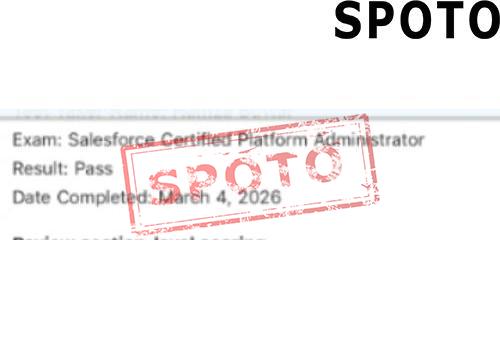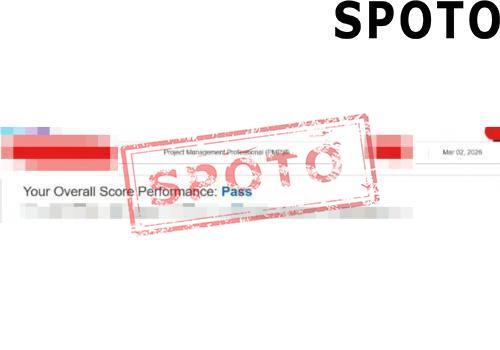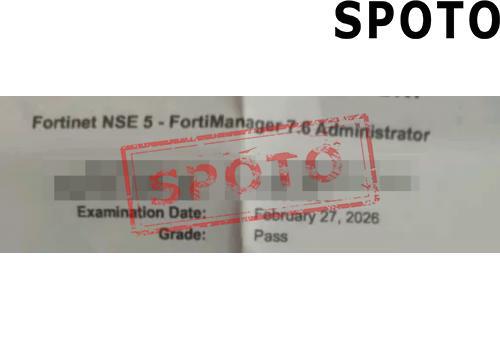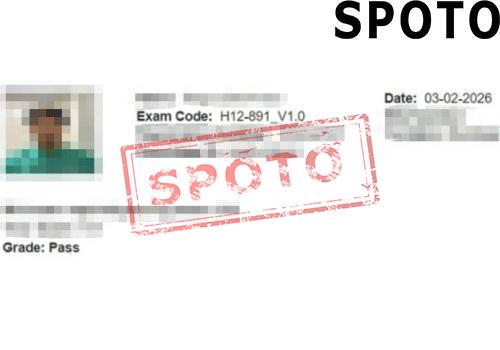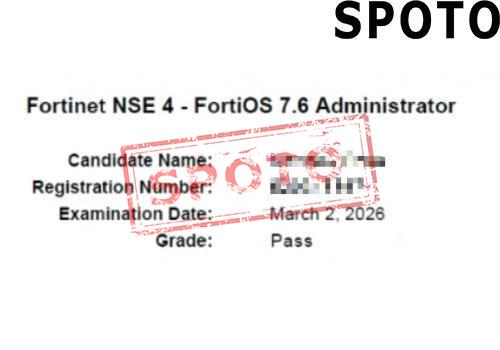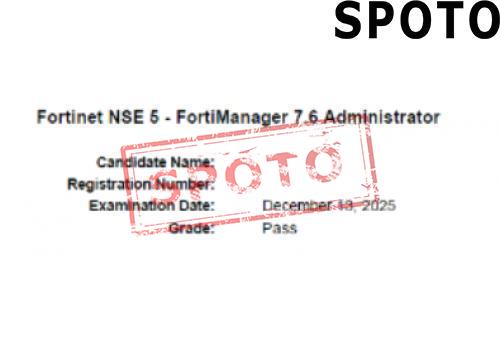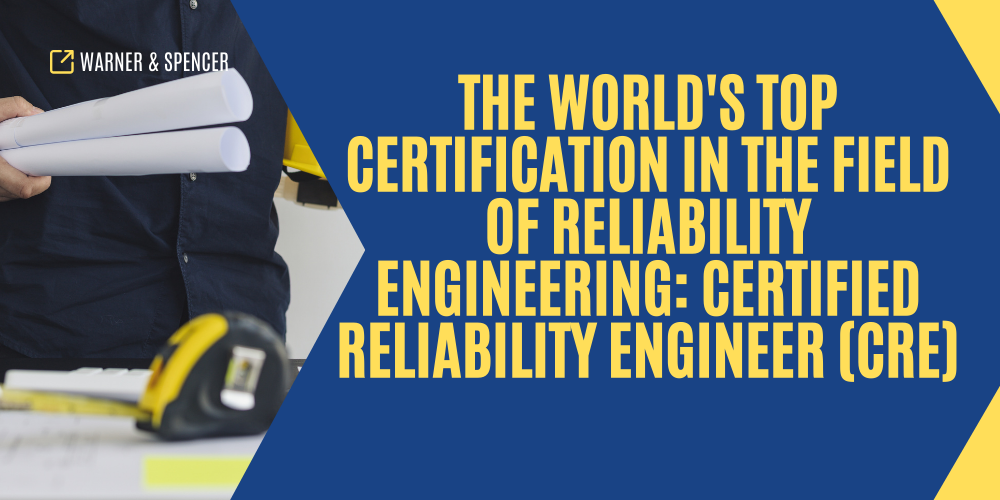
Table of Contents
- 1. Introduction to the ASQ Certified Reliability Engineer (CRE) certification
- 2. The Competitive Edge of ASQ Certified Reliability Engineer (CRE) Certification
- 3. Core Components of the ASQ Certified Reliability Engineer (CRE) Certification
- 4. What are the requirements to be an ASQ Certified Reliability Engineer (CRE)?
- 5. Comparable Certifications to ASQ Certified Reliability Engineer (CRE) Certification
The Certified Reliability Engineer certification is a top-level certification in the field for developing "experts in the entire lifecycle of system reliability management."
1. Introduction to the ASQ Certified Reliability Engineer (CRE) certification
ASQ Certified Reliability Engineer (CRE) is a globally authoritative top-level certification in the field of reliability engineering, issued by the American Society for Quality (ASQ). It focuses on verifying the comprehensive professional abilities of practitioners in implementing reliability design, testing, analysis, improvement, and risk management throughout the product/system lifecycle.
It is the "gold standard" in the field of reliability engineering, aimed at cultivating advanced technical and management talents who can systematically improve system availability, durability, safety, and economy, and reduce failure risks. It is the core ladder for the transformation from "basic quality" to "reliability field experts."
In key industries such as manufacturing and healthcare, product reliability directly determines customer trust, brand value, and business operating costs. The recall, repair, and shutdown losses caused by failure may result in huge economic losses and even endanger personal safety. The traditional "post repair" model can no longer meet the quality requirements of complex products, and a "full lifecycle reliability control" system needs to be established.
The core positioning of CRE certification is to cultivate "system full lifecycle reliability experts," who are not simply failure analysis or testing personnel, but can stand at the height of product strategy, design reliability systems, set reliability goals, integrate reliability tools and methods, promote cross team reliability collaboration, solve complex reliability problems, and ensure that the system operates stably, has fewer failures, and is easy to repair and replace in the expected usage environment.
When designing a reliability system for power batteries for new energy vehicle enterprises, CRE certification holders will lead the reliability requirement analysis and develop core indicators such as power battery life, failure rate, and high and low temperature adaptability; during the research and development phase, FMEA is used to identify potential failure risks such as battery short circuits and thermal runaway, and DFR is used to optimize the battery structure and heat dissipation scheme.
Design accelerated life testing and environmental stress screening during the testing phase to quickly verify the reliability of the battery under extreme conditions; Establish a fault data collection and analysis system during the operation and maintenance phase, predict battery life through Weibull analysis, develop preventive maintenance plans, and ultimately reduce the risk of vehicle recalls and user complaints caused by battery failure.
2. The Competitive Edge of ASQ Certified Reliability Engineer (CRE) Certification
CRE is a globally recognized top certification in the field of reliability engineering, and the ASQ brand is highly recognized in key industries such as electronics and healthcare. When recruiting senior reliability engineers and core R&D positions, they are often listed as "priority or necessary conditions," especially in large manufacturing enterprises and high-end equipment fields, which is the core symbol that distinguishes ordinary technical personnel from reliability experts. Internationally, the average annual salary of certified individuals is 30%-45% higher than that of uncertified individuals.
CRE certification covers the core requirements of product lifecycle reliability, integrating multidimensional capabilities such as design, testing, analysis, and maintenance. After passing, it can prove the ability to independently solve complex reliability problems, directly lead the construction and optimization of enterprise level reliability systems, become the core of team technology and management, and have key discourse power in major projects.
CRE holders can join the ASQ Global Reliability Community to access the latest industry standards, reliability tool practices, and benchmark enterprise cases; prioritize participation in ASQ International Reliability Conference and specialized seminars, connect with global reliability expert resources, expand professional horizons and high-end project opportunities.
3. Core Components of the ASQ Certified Reliability Engineer (CRE) Certification
For technical personnel dedicated to establishing professional reliability control capabilities in the engineering field, system full lifecycle reliability engineering certification is a highly valuable professional qualification.
CRE certification systematically covers the entire process of reliability management from product design, manufacturing to operation and retirement, aiming to comprehensively verify whether you have a complete knowledge system and practical ability to build, implement, and optimize product reliability systems.
As the core of certification, reliability design and analysis will enable you to delve into reliability oriented design methods, master core analysis tools such as FMEA and FTA, and prevent and eliminate potential failures from the design source.
This module requires you to be proficient in key testing techniques such as life testing and accelerated life testing, and be able to develop scientific testing strategies to effectively verify and improve product reliability levels.
Repair and maintenance management is a mixed maintenance strategy that requires you to master preventive maintenance, predictive maintenance, and optimize the allocation of repair resources to achieve the best balance between repair costs and product availability.
The data collection and statistical analysis module requires you to establish a comprehensive reliability data collection system and be able to use methods. You will learn systematic reliability risk management methods, master professional failure analysis techniques, accurately locate the root cause of failure, and establish prevention mechanisms.
Finally, you need to master the reliability control methods for the entire product lifecycle and be able to develop targeted reliability implementation plans based on the special requirements of different industries.
In summary, obtaining CRE certification not only demonstrates your professional ability to build and implement a modern reliability engineering system, but also signifies that you have become a core technical expert in ensuring the reliable operation of products throughout their entire lifecycle. It is an important milestone in establishing a personal professional brand in the field of reliability engineering.
4. What are the requirements to be an ASQ Certified Reliability Engineer (CRE)?
(1) Qualification prerequisites:
The prerequisite for obtaining Certified Reliability Engineer (CRE) is that you need to meet any of the following conditions:
- Having a bachelor's degree or above and 4 years of full-time work experience in the field of reliability engineering;
- Having a college degree and 5 years of full-time work experience in the field of reliability engineering
- Having a high school/vocational education and 8 years of full-time work experience in the field of reliability engineering
Work experience should involve core reliability aspects, with priority given to management positions or cross team reliability collaboration experience.
(2) Training and examinations:
The number of Certified Reliability Engineer (CRE) questions covers 175 single-choice questions, including 25 non scoring prediction questions. The exam lasts for 4 hours. A full score of 750 points, reaching 550 points or above to pass.
The exam fee is approximately $498 for ASQ members and $698 for nonmembers.
(3) Qualification maintenance:
The Certified Reliability Engineer (CRE) certificate is valid for 3 years, and the renewal requirement is that you need to accumulate 30 Continuing Education Units (CEUs) during the validity period, submit a renewal application, and pay the renewal fee.
5. Comparable Certifications to ASQ Certified Reliability Engineer (CRE) Certification
- Certified Maintenance & Reliability Professional (CMRP)
- Certified Reliability Professional (CRP)
- Site Reliability Engineering (SRE)
- Asset Reliability Practitioner (ARP-E)
